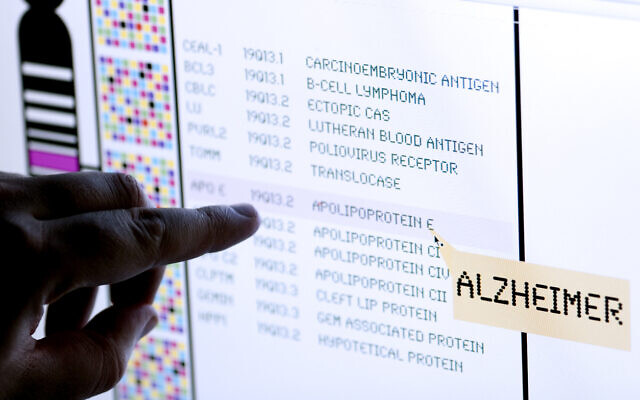Hebrew University of Jerusalem: Getting a Head Start on Advancing Medicine
To learn more, please contact Monica Loebl, AFHU National Director of Development at southeast@afhu.org or 561.750.8585.
Dementia has been described as the silent epidemic of the 21st century, a degenerative illness which directly affects individuals and families around the world. A better understanding of this condition, which manifests itself in a wide range of debilitating symptoms, has become a major focus for researchers across the medical, bioscience, and public healthcare departments at the Hebrew University of Jerusalem (HU).
The university’s dementia research encompasses a wide range of activities, including clinical and lab-based studies aimed at deciphering the complex molecular and cellular pathologies that lead to the onset of diseases related to memory loss and cognition. HU is also focused on training the next generation of medical professionals, teaching them how to treat dementia patients with compassion while integrating the latest pharmaceutical methodologies.
But attention is increasingly being paid to achievements advanced by HU computer scientists, acting at the forefront of Artificial Intelligence (AI) development, with tools that may improve the diagnosis and treatment of disease, including dementia. When it comes to the successful implementation of AI, particularly in the medical field, where proving the effectiveness of this technology lies at the center of hoped-for diagnostic and therapeutic advancements, the critical tool is access to an immense amount of patient information, known in the field as ‘big data.’
Harnessing decades of academic and professional collaboration with key players in Israeli medicine, specifically hospitals, health funds, and the IDF, researchers at Hebrew University’s Faculty of Medicine have established the Center for Computational Medicine, whose dynamism depends upon the millions of data markers made possible through access to information provided by those partners.
But access to data is only the first, albeit critical, step in a deeply complex, and always evolving, process.
The next challenge requires building the computer science infrastructure that can effectively mine massive troves of data to create models that may change the very future of healthcare.
Dr. Shahar Arzy, a senior lecturer in the Edmond and Lily Safra Center for Brain Sciences (ELSC) and the Cognitive Science Program at HU has identified this task as one of his principal goals. “Our Computational Neuropsychiatry lab aims to close the gaps between clinical practice [patient care] and research, neurology, psychiatry, and psychology in order to reformulate our understanding of the human self and its pathologies,” he said. “To this end, we use newly developed computational methods of machine-learning algorithms and analyses applied directly to patients’ data.” Using these approaches, Dr. Arzy and his team are working to develop clinical tools that will enable medical professionals to diagnose, monitor, and treat neuropsychiatric disorders.
 Recognizing the immense potential that exists through the application of AI, much of Dr. Arzy’s attention has been focused on integrating the tools for early diagnosis of Alzheimer’s disease. His specific goal is to develop computational methods to analyze Alzheimer’s symptoms and changes in the patient’s brain during the early stages of the disease.
Recognizing the immense potential that exists through the application of AI, much of Dr. Arzy’s attention has been focused on integrating the tools for early diagnosis of Alzheimer’s disease. His specific goal is to develop computational methods to analyze Alzheimer’s symptoms and changes in the patient’s brain during the early stages of the disease.
By developing and applying these tools on the clinical level, researchers significantly enhance their ability to identify and diagnose the condition in patients who are at risk, potentially well before the disease manifests itself through symptoms.
Dr. Arzy’s tool is called ‘Clara,’ a hint towards the concept of ‘clarity of mind.’ “Early diagnosis is critical in changing the trajectory of dementia and, with the current delayed diagnosis, the impact of existing tools is low, and the ability to develop new therapies is limited,” he said. “Clara is a highly engaging, predictive, and data driven chat app that uses self-referenced estimations of people, events, and places to easily and precisely identify early-stage mild cognitive impairment through remote screening and ongoing monitoring.”
Through approaches like Dr. Arzy’s and myriad tools under development at the Center for Computational Medicine and ELSC, Hebrew University stands at the forefront of maximizing the power of AI – which many experts see as the most important technological advancement of our time. By harnessing the power of data and utilizing advanced analytical tools to implement findings, we are on the cusp of a new era that has the potential to revolutionize medicine as well as many other aspects of daily life–with Hebrew University of Jerusalem uniquely positioned to play a central role in this dramatic process.
To learn more, please contact Monica Loebl, AFHU National Director of Development at southeast@afhu.org or 561.750.8585.
Paid Content by American Friends of the Hebrew University




comments